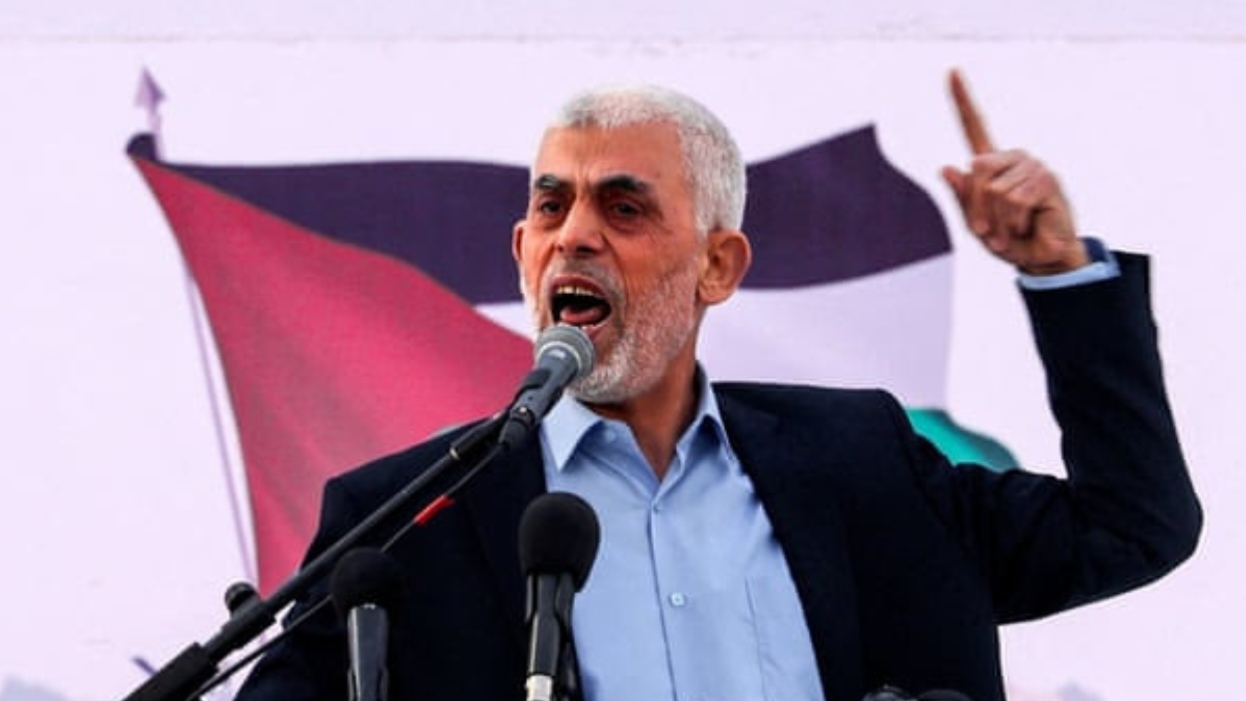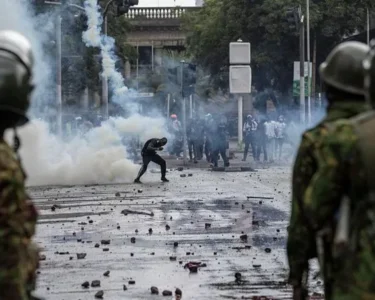BY BBC
Yahya Sinwar has disappeared. Hardly surprising when thousands of Israeli troops backed by drones, electronic eavesdropping devices, and human informants, are all trying to discover his whereabouts.
Sinwar, who has striking snow-white hair and jet-black eyebrows, is the leader of Hamas’s political wing in Gaza, and one of Israel’s most wanted men.
It holds him responsible along with others for the 7 October raid into southern Israel, in which about 1,200 people were killed, and more than 200 others kidnapped.
“Yahya Sinwar is the commander… and he is a dead man,” declared the Israel Defense Forces (IDF) spokesman Rear Admiral Daniel Hagari in early October.
“This abominable attack was decided upon by Yahya Sinwar,” said IDF Chief of Staff Herzi Halevi. “Therefore he and all those under him are dead men walking.”
That includes Mohammed Deif, the elusive leader of Hamas’s military wing, the Izzedine al-Qassam Brigades.
Hugh Lovatt, the senior policy fellow at the European Council on Foreign Relations (ECFR), believes Deif was the brains behind the planning of the 7 October attack because it was a military operation, but Sinwar “would likely have been part of the group that planned and influenced it”.
Israel believes that Sinwar, who is effectively second-in-command after Hamas leader Ismail Haniyeh, is cornered below ground, hiding in tunnels somewhere beneath Gaza with his bodyguards, communicating with no one for fear that his signal will be tracked and located.
Upbringing and arrests
Sinwar, 61, widely known as Abu Ibrahim, was born in the Khan Younis refugee camp at the southern end of the Gaza Strip. His parents were from Ashkelon but became refugees after what Palestinians call “al-Naqba” (the Catastrophe) – the mass displacement of Palestinians from their ancestral homes in Palestine in the war that followed Israel’s founding in 1948.
He was educated at Khan Younis Secondary School for Boys and then graduated with a bachelor’s degree in Arabic language from the Islamic University of Gaza.
At that time, Khan Younis was a “bastion” of support for the Muslim Brotherhood, says Ehud Yaari, a fellow of the Washington Institute for Near East Policy, who interviewed Sinwar in prison four times.
The Islamist group “was a massive movement for young people going to the mosques in the poverty of the refugee camp”, Yaari says, and it would later take on similar importance for Hamas.
Sinwar was first arrested by Israel in 1982, aged 19, for “Islamic activities” and then arrested again in 1985. It was around this time that he won the confidence of Hamas’s founder, Sheikh Ahmed Yassin.
The two became “very, very close”, says Kobi Michael, a senior researcher at the Institute for National Security Studies in Tel Aviv. This relationship with the organization’s spiritual leader would later give Sinwar a “halo effect” within the movement, Michael adds.
Two years after Hamas was founded in 1987, he set up the group’s feared internal security organization, the al-Majd. He was still only 25.
Al-Majd became infamous for punishing those accused of so-called morality offenses – Michael says he targeted shops that stocked “sex videos” – as well as hunting down and killing anyone suspected of collaborating with Israel.
Yaari says he was responsible for numerous “brutal killings” of people suspected of cooperation with Israel. “Some of them with his own hands and he was proud of that, talking about it to me and others.”
According to Israeli officials, he later confessed to punishing a suspected informer by getting the man’s brother to bury him alive, finishing the job using a spoon instead of a spade.
“He is the kind of man who can gather around him followers, fans – together with many who are simply afraid of him and don’t want to pick any fights with him,” Yaari says.
In 1988, Sinwar allegedly planned the abduction and killing of two Israeli soldiers. He was arrested the same year, convicted by Israel for the murder of 12 Palestinians, and given four life sentences.
The prison years
Sinwar has spent a large part of his adult life – over 22 years – in Israeli prisons, from 1988 to 2011. His time there, some of it in solitary confinement, appears to have radicalized him even further.
“He managed to impose his authority ruthlessly, using force,” says Yaari. He positioned himself as a leader among the prisoners, negotiating on their behalf with prison authorities and enforcing discipline among the inmates.
An Israeli government assessment of Sinwar during his time in prison described his character as “cruel, authoritative





